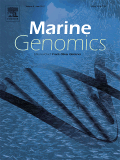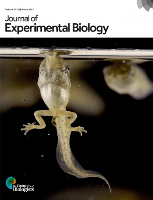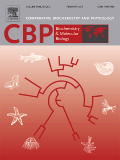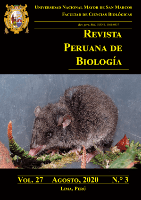
BIOLOGY BULLETIN
Scope & Guideline
Bridging Gaps in Biological Research for Global Impact.
Introduction
Aims and Scopes
- Ecological and Environmental Studies:
The journal publishes research related to ecological interactions, biodiversity, and the effects of environmental changes on organisms and ecosystems. - Molecular and Cellular Biology:
Research focusing on molecular mechanisms, cellular processes, and genetic studies, including gene expression, molecular interactions, and cellular responses to environmental stimuli. - Taxonomy and Systematics:
The journal includes studies on species identification, phylogenetic analysis, and the taxonomic classification of various organisms, highlighting new species and genetic diversity. - Physiological and Behavioral Ecology:
Papers addressing physiological adaptations of organisms to their environments, as well as studies on behavior and ecological interactions among species. - Conservation Biology:
Research that focuses on the conservation of species, habitats, and ecosystems, including the impacts of human activities on biodiversity. - Biotechnological Applications:
The journal covers studies that explore biotechnological applications in agriculture, medicine, and environmental management, including the use of microorganisms and plant extracts. - Aquatic Biology and Marine Ecology:
Research related to aquatic organisms, marine ecosystems, and the impacts of environmental changes on aquatic life.
Trending and Emerging
- Climate Change Impact Studies:
Research examining the effects of climate change on biodiversity, species distribution, and ecosystem dynamics is increasingly prevalent, highlighting the urgency of understanding ecological responses to global warming. - Molecular Ecology and Genomics:
There is a growing trend in applying genomic techniques to ecological studies, including population genetics and phylogeography, enabling deeper insights into biodiversity and evolutionary processes. - Microbial Ecology and Biotechnology:
Studies exploring microbial interactions, their roles in ecosystems, and their potential applications in biotechnology are on the rise, reflecting a broader interest in harnessing microbial diversity for environmental and health benefits. - Conservation Genetics:
Research focusing on genetic diversity and conservation strategies for endangered species is gaining traction, emphasizing the importance of genetic tools in biodiversity preservation. - Behavioral Ecology:
There is an emerging interest in the behavioral aspects of ecology, including studies on animal behavior in response to environmental changes and social dynamics within populations. - Ecological Restoration:
Research related to ecological restoration practices and their effectiveness is increasing, reflecting a growing recognition of the need for active management of degraded ecosystems.
Declining or Waning
- Radiobiology and Radiation Effects:
There has been a noticeable decrease in papers focusing on radiobiology, particularly those examining the effects of radiation on biological systems, possibly due to a shift towards more pressing ecological and environmental issues. - Traditional Taxonomic Studies:
Research that solely emphasizes traditional taxonomy without molecular approaches appears to be declining, as the field moves towards integrative and molecular methods for species identification. - Invasive Species Research:
While still important, the volume of studies specifically addressing invasive species impacts has diminished, potentially overshadowed by broader ecological and conservation themes. - Historical Ecology:
Papers that focus on historical ecology and long-term ecological studies have become less frequent, indicating a potential shift towards current ecological assessments and immediate conservation needs. - Physiological Studies on Terrestrial Mammals:
There is a waning interest in physiological studies specifically on terrestrial mammals, as more research attention shifts towards aquatic organisms and their responses to climate change.
Similar Journals

FOLIA BIOLOGICA-KRAKOW
Catalyzing innovation in molecular biology research.FOLIA BIOLOGICA-KRAKOW, published by the renowned Polish Academy of Sciences, Institute of Systematics and Evolution of Animals, serves as a pivotal platform for advancing research in the fields of Biochemistry, Genetics, and Molecular Biology. Since its inception in 1953, this journal has consistently contributed to the academic dialogue, focusing on a diverse range of topics, including evolutionary biology, molecular genetics, and ecological biochemistry. Although currently classified in Q4 quartiles according to the 2023 categorizations in both Biochemistry, Genetics and Molecular Biology (miscellaneous) and Medicine (miscellaneous), its dedicated efforts to disseminate critical findings and foster scholarly exchange ensure its relevance and growth in the scientific community. FOLIA BIOLOGICA-KRAKOW is not Open Access, but researchers can access its publications through institutional subscriptions or library services, making it a valuable resource for scientists seeking to enrich their understanding of biological processes. With its commitment to excellence and innovation in biological research, this journal remains an essential reference for researchers, professionals, and students alike, contributing significantly to the evolution of contemporary biological sciences.

All Life
Advancing Knowledge Across DisciplinesAll Life is a distinguished academic journal published by TAYLOR & FRANCIS LTD, based in the United Kingdom, focusing on the interdisciplinary realms of agricultural and biological sciences, biochemistry, genetics, and neuroscience. With the ISSN 2689-5293 and E-ISSN 2689-5307, this open-access journal aims to disseminate high-quality research from 2020 to 2024, facilitating a wider reach and impact across various fields. Notably, it holds a Q3 ranking in both Agricultural and Biological Sciences, as well as Biochemistry, Genetics and Molecular Biology, and a Q4 ranking in Neuroscience, reflecting its growing presence in these disciplines. All Life aims to foster collaboration among researchers, professionals, and students, encouraging innovative approaches in understanding life sciences. By delivering timely insights and thought-provoking discussions, the journal plays a crucial role in advancing knowledge and promoting interdisciplinary dialogue in the evolving landscape of life sciences research.

Marine Genomics
Advancing Knowledge of Marine Genetic DiversityMarine Genomics, published by Elsevier, is a pivotal journal specializing in the intersection of genomic sciences and aquatic biology. With an ISSN of 1874-7787 and an E-ISSN of 1876-7478, this journal serves as a vital platform for researchers and professionals eager to advance our understanding of marine genetic diversity, evolutionary processes, and biotechnological applications. The journal holds a Q2 ranking in Aquatic Science and a Q3 ranking in Genetics, reflecting its significant contributions to the field alongside its impressive Scopus rankings in both Agricultural and Biological Sciences and Biochemistry, Genetics, and Molecular Biology. As an essential resource for students and academics alike, Marine Genomics is committed to fostering awareness and knowledge of marine ecosystems through quality research disseminated to a global audience. This journal is particularly crucial in an era where understanding aquatic genomics is increasingly vital for conservation efforts and sustainable practices in marine environments.

JOURNAL OF EXPERIMENTAL BIOLOGY
Unveiling the Secrets of Life Through Rigorous ResearchJOURNAL OF EXPERIMENTAL BIOLOGY, published by COMPANY BIOLOGISTS LTD, stands as a cornerstone in the fields of Animal Science, Aquatic Science, Ecology, Insect Science, and Physiology. With a rich history dating back to 1945, this esteemed journal has continually provided a platform for high-quality research, evidenced by its impressive Q1 rankings across multiple categories in the 2023 Journal Citation Reports. Located in the United Kingdom, it serves an international audience, offering critical insights and advancements in various biological sciences. As a non-open access journal, it provides rigorous peer-reviewed articles that contribute profoundly to our understanding of biological processes and their implications. With an extensive reach among researchers, practitioners, and academia, the JOURNAL OF EXPERIMENTAL BIOLOGY is not only a repository of knowledge but also a catalyst for ongoing research and innovation in experimental biology.

Open Life Sciences
Fostering Innovation in Life Sciences ResearchOpen Life Sciences is a distinguished open-access journal published by DE GRUYTER POLAND SP Z O O, dedicated to advancing research across diverse disciplines in the life sciences. Since its inception in 2014 and transitioning to open access in 2015, the journal has become a pivotal platform for researchers, fostering the dissemination of high-quality scientific work while ensuring that valuable findings are freely accessible to the global community. With an impressive categorization into Q2 in Agricultural and Biological Sciences and Q3 in several other fields including Biochemistry and Immunology as of 2023, Open Life Sciences promotes innovation and knowledge sharing across its broad spectrum of topics. The journal's commitment to excellence is reflected in its competitive Scopus rankings, making it an essential resource for professionals and students alike who are keen to stay at the forefront of life sciences research.

COMPARATIVE BIOCHEMISTRY AND PHYSIOLOGY B-BIOCHEMISTRY & MOLECULAR BIOLOGY
Connecting the Dots in Biochemistry and PhysiologyComparative Biochemistry and Physiology B: Biochemistry & Molecular Biology, published by Elsevier Science Inc, is a premier journal dedicated to the field of biochemistry and molecular biology with a specific focus on comparative analyses across various biological systems. Since its inception in 1971, the journal has made significant contributions to our understanding of the biochemical and physiological processes that differentiate organismal function across animal and aquatic life. The journal holds a commendable position in the academic community, evidenced by its 2023 rankings, which place it in the second quartile for Animal Science and Zoology and Aquatic Science, and the third quartile for both Biochemistry and Molecular Biology as well as Physiology. Researchers and students can access cutting-edge research through this highly respected publication, which continues to influence the future of biological sciences. While currently not an Open Access journal, its rigorous peer-review process ensures that only high-quality articles are disseminated, further solidifying its role as a critical resource for professionals and academics alike seeking to explore the intricate relationships between biochemical structures and physiological functions.

REVISTA PERUANA DE BIOLOGIA
Fostering Global Knowledge in Biological SciencesREVISTA PERUANA DE BIOLOGIA, an esteemed journal published by the Universidad Nacional Mayor de San Marcos, Faculty of Biological Sciences, has been a vital platform for disseminating significant biological research since its inception in 1974. With an Open Access model, this journal ensures that high-quality research is freely available to readers across the globe, fostering the advancement of knowledge within the field of agricultural and biological sciences. Despite proprietary challenges, the journal has secured a respectable Q3 category ranking in Agricultural and Biological Sciences and currently holds a 137th rank in Scopus among its peers. By embracing a comprehensive scope, REVISTA PERUANA DE BIOLOGIA encourages submissions that contribute to diverse biological topics, making it an essential resource for researchers, professionals, and students looking to enhance their understanding and expertise. With its ongoing commitment to excellence, this journal remains a cornerstone of biological research in Peru and beyond, reinforcing the importance of collaboration and knowledge sharing in the scientific community.

Marine Biology Research
Connecting researchers to preserve our oceans.Marine Biology Research is a premier journal published by Taylor & Francis, focusing on the dynamic field of marine biology and its intersecting realms of aquatic science, ecology, and oceanography. Since its inception in 2005, this journal has served as a crucial platform for researchers and professionals to disseminate their findings, with a vision extending to 2024 and beyond. The journal is recognized with a Q3 quartile ranking in both Aquatic Science and Ecology, Evolution, Behavior and Systematics, underscoring its growing influence in these fields as evidenced by its Scopus rankings. Located in the United Kingdom, Marine Biology Research aims to foster collaboration and innovation through open access options, facilitating knowledge exchange among the academic community. With a steady commitment to advancing marine sciences, this journal is an invaluable resource for those dedicated to understanding and preserving our ocean ecosystems.

JOURNAL OF BIOSCIENCES
Connecting Researchers to the Heart of BiosciencesJOURNAL OF BIOSCIENCES, published by the Indian Academy of Sciences, has established itself as a pioneering platform in the fields of biosciences, encompassing diverse research areas such as agricultural and biological sciences, biochemistry, genetics, molecular biology, and medicine. With an impressive trajectory since its inception in 1979, the journal has achieved notable recognition, securing a Q1 ranking in Agricultural and Biological Sciences and maintaining its place in the top quartiles for Biochemistry and Medicine as of 2023. With Scopus rankings placing it at #32 in General Agricultural and Biological Sciences and #65 in General Biochemistry, Genetics, and Molecular Biology, the journal reaches the 85th and 70th percentiles respectively, reflecting its impact and relevance in current scientific discourse. Although it does not offer open access, the JOURNAL OF BIOSCIENCES remains crucial for researchers, professionals, and students dedicated to advancing knowledge and innovation within the biosciences, providing a vibrant forum for high-quality research and comprehensive reviews.

MARINE BIOLOGY
Leading the Charge in Marine Research ExcellenceMARINE BIOLOGY, published by Springer Heidelberg, is a leading international journal that has served as a crucial platform for the dissemination of research in marine ecosystems since its inception in 1967. With a strong emphasis on the biological aspects of marine environments, this journal stands out in its field, holding a prestigious Q1 ranking in categories such as Aquatic Science and Ecology for 2023. Researchers and academicians will find valuable insights into ecological, evolutionary, and behavioral studies, making it an essential resource for those investigating marine organisms and their interactions. The journal is indexed in key databases and achieves a commendable rank in various Scopus categories, ensuring a broad visibility for published work. As the field of marine biology continues to grow in relevance, particularly in light of environmental changes and biodiversity loss, MARINE BIOLOGY provides an indispensable platform for advancing knowledge and fostering scientific discourse within the global research community.